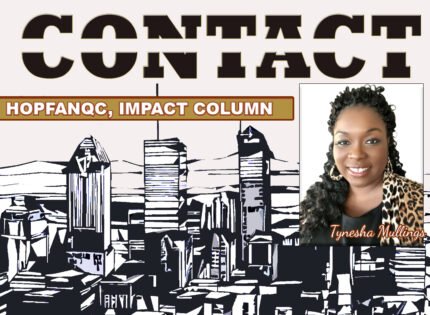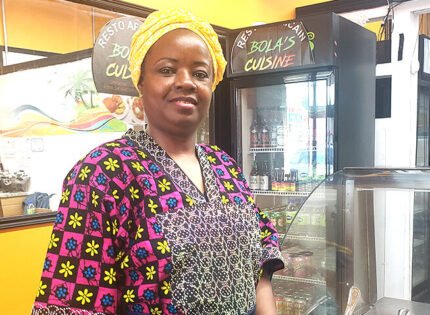Just like Black history has become the flavour of the month of February, I can’t separate the African history of the Caribbean, Latin America (especially Brazil), the nations of the South Pacific, North America and Europe from the continent of Africa.
Diluted by time as Black history might’ve become in some places, the reality is always there to see… African history must therefore be addressed holistically.
If what’s happening there, where it all began, does not resonate, then…
That said, it truly is disheartening watching and reading the news coming out of a handful of African countries these days. Those sordid images of drought, famine, starvation and dying happening right now in Kenya, Nigeria, Ethiopia, Somalia, (even Yemen across the Mandeb Strait, which separates continental Africa from Arabia), and South Sudan are truly heart wrenching.
Out of a protracted internal conflict in Sudan, the continent’s longest-running civil war, and eventually a 2005 peace deal, South Sudan was born. It gained its independence on July 9, 2011, becoming Africa’s newest country.
Two distinct characters, that man in the cowboy hat and the other one with that gap in his upper front teeth, are not bosom bodies, but are the primary political players who have been managing to hold the politically fragile and tenuous new country together.
I watched news of the independence celebration with interest that day, all the while wondering why Africa needed another new country, but like all the handful of African and European-Western dignitaries wished the new country well.
It wasn’t long ‘til underlying tensions bubbled to the surface and newly independent South Sudanese began to squabble, and blood began to flow… again.
“[…] It stems from a civil war that began in 2013, which has resulted in tens of thousands of people killed and over a million and a half refugees seeking havens in neighbouring countries,” according to a recent article.
Now come images of drought, starvation and dying in South Sudan.
“South Sudan on the verge of genocide” states one of many headlines in the news.
South Sudan, Africa’s baby country, it truly is an interesting, ironic, paradoxical case and place. What an (other) African disaster. Each time there’s another flare-up I wonder why the vying political forces sacrificed all that time and human lives fighting for an independent state, which is now fighting against itself.
“Millions in urgent need of food across eastern Africa, aid agency says,” screams another headline. “More than 20 million people are in urgent need of food… The extended conflict that exists in areas of the country… (or countries) makes any functioning service provision extremely difficult… So the emphasis shifts to humanitarian access for external, global agencies such as the United Nations, NGOs and relief agencies…”
But in order for humanitarian assistance to reach the afflicted, functioning governments are necessary. “It’s very difficult without them,” according to one aid agency.
Africa’s [our] present history and multiple problems were seeded in the past: hundreds of years of slavery, colonialism and neo-colonialism… The long-term effects, a well-informed political person told me the other day is the primary cause of what continues to ail Africa. Worse than that is the post-colonial… neo-colonial [African] bourgeoisie that continue to determine the place and space Africa occupies in the global discourse.
Africa’s political class seems oblivious to the continent’s recurring problems, always seemingly deferring to the rest of the world to “Help Africa.” Into this, the 21st century, they seem to lack any collective plan to develop nations like the ones in question, by accessing the scientific capacity, which would allow the continent to do better. There’s simply no reason for so many African countries to be wallowing in its dubious “help” condition: tribalism, war (civil or otherwise), drought and famine, poverty… All those things that continue to impact [parts of] the continent today.
How about Africa’s leaders coming together with a rest-of-the- twenty-first-century plan to begin to develop the continent? The resources that have been used for so many other questionable purposes could be invested in acquiring the technology to do things that would finally begin to impact the lives of Africans in practical and tangible ways.
Many on the continent continue to ask the question: Why does Africa continue to depend on the world for care packages, rations… sustenance? And what about this story about “a surge in the purchase of African land by foreign companies and governments like China, India… to grow food and other crops for export…and Africans losing their customary rights to use land…? Why do African leaders continue to allow this new form of colonialism an imperialism to take root while their people starve, in some cases resorting to eating grass… and other shrubbery?
African leaders seem to be on the outside watching as other once pauperized places in the world (the Middle East for example), go about the business of developing. It’s the 21st century after all.
Here’s something for the leaders of those four African countries to think about. Google the name Norman Borlaug and his agricultural research, which resulted in the creation of a variety of wheat, corn, rice…
And as Africans continue to starve to death the NGOs and other opportunists are looking to capitalize on peoples’ misery with the usual: Help starving Africans, Help feed a starving child… Help us reduce hunger in Africa…
Upon reflection I realize that I’ve heard and seen all that before, all my life actually.
To say nothing has changed in Africa over the decades would be a lie; much has changed over the years. And I watch many BBC and other programs that focus on Africa and I see change happening.
Meanwhile new United Nations Secretary General, Antonio Guterres (like many, or all of his predecessors) is asking the international community to intervene to combat the famine that’s ravaging the countries mentioned at the top. “It makes me deeply unhappy that such things are possible in a world as rich as that of today,” he said. “It’s incredible.”
And those me, my family and friends African politicians are now engaging in a new form of politics: seeking extensions to their political lives and expiry dates, a blatant illustration of their thirst/lust for power. Their political lives take precedence to the welfare of the people of their respective hungry nations.
















